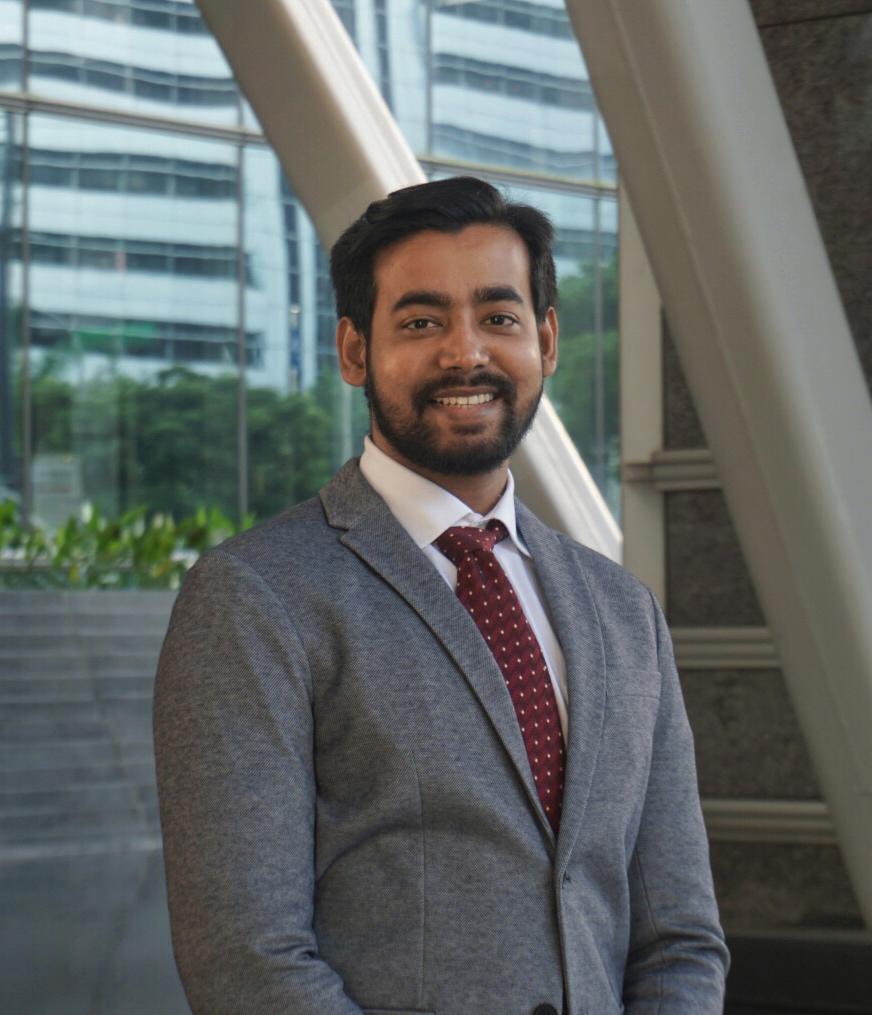INDIA / Taipei, TAIWAN :

This is the ninth part of the series called ` Scientist Says’ where we bring for our readers the significant research works of young scientists in various fields.
Dr. Nahid Kaisar is currently working as a postdoctoral fellow in Academia Sinicia, Taiwan. He completed his PhD in Material Science and Engineering from National Taiwan University of Science and Technology, Taiwan. His work is published in several international journals and he has also presented his work in several conferences in USA and Japan. He has also patented his research work for future commercialization.
Here are the excerpts of an interview of Dr. Kaisar with Rashida Bakait of India Tomorrow.
Q. Please briefly explain your research.
Ans: I am working on the development of nanomaterials and their applications on Lithium-ion battery and Lithium-Sulfur battery. I completed my PhD on the development of Li-S battery, which is also known as next-generation battery technology. We have worked in direct collaboration with industries who manufacture battery for electric car and other applications, which makes the research work more challenging. While working on the materials and its application, always keep in mind about the market viability and industry viability.
At this moment we have well developed Li-ion, Li-polymer battery technology which has wide range of applications that include electric vehicles, consumer electronics and grid technology. But the energy density does not satisfy the current demand. We are doing research on the Li-S battery, which has five times higher energy density and discharge capacity than the current Li-ion battery.
Petrochemical industry produces plenty of Sulfur as by-product, which makes Sulfur abundant element and sulfur is environment friendly compared with the heavy metals used in Li-ion battery. A successfully commercialize Li-S battery not only increase the battery energy density but lower the battery cost.
Q. What was the objective of your research?
Ans: The main objective of my research work on Li-S battery technology is to develop a successful product that is cheaper than recent Li-ion battery and at the same time exhibits higher energy density. The main aim of my research work is to develop a successful Li-S battery that will help to replace the use of toxic heavy metals (like Co, Mn, Ni) which has adverse effects on the environment.
Q. When did you begin and complete your research?
Ans: I started my research in the year 2016 as a graduate student in National Taiwan University of Science and Technology, where I worked on the thin film technology. Later, in 2017 I started working in Academia Sinica, one of the premier research institutes in Taiwan. I completed my Ph. D in April 2020. Later, in the month of May 2020 I started working as a postdoctoral fellow in Academia Sinica.
Q. What were the findings of your research?
Ans: There are two aspects of my research work:
- Material development: I do research on the design and synthesis of nanomaterials for various applications that include energy storage system. I keep in mind that the synthesis process must be market friendly and easy to process in industry.
- Energy storage: Li-S battery face drastic capacity and active materials loss after few charge-discharge cycles. I have successfully developed new materials and battery technology that have successfully stabilized the battery performance.
- Q. Any scholarships or awards for research?
Ans: I have been awarded National Taiwan University of Science and Technology graduate scholarship. I have also been awarded CTCI outstanding research award in 2020 for outstanding research work during PhD.
Q. How do you think your research would be beneficial to the industry or society?
Ans: LI-S battery technology is a new topic of research compared to Li-ion battery. My research work adds few innovative research ideas to the field that would help in the development of a commercial product.
Q. Any new research you are working on now.
Ans: Currently, I am working on the development of new anode materials for Li-ion battery. Presently, commercial Li-ion batteries use graphite as anode material, which has lower discharge capacity and low conductivity. I am doing research on new materials that can replace the state-of-the-art graphite while exhibiting similar performance.
Q. How do you think your research can be carried forward?
Ans: Research is a never-ending process. We need to design industry feasible synthesis process for battery materials using safe and non-toxic materials. We need to collaborate with battery management system that will help to produce an outstanding product. There is a need of strong collaboration between academic and industry to achieve a fruitful product.
Q. Please give few tips and suggestions for the budding scientists.
Ans: All the students who are looking forward to start research journey, should focus on finding an outstanding supervisor. Your supervisor will be the key in success during your research career. University and country play a secondary role.
source: http://www.indiatomorrow.net / India Tomorrow / Home> Education / by Rashida Bakait, India Tomorrow / May 28th, 2021








